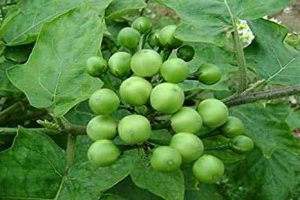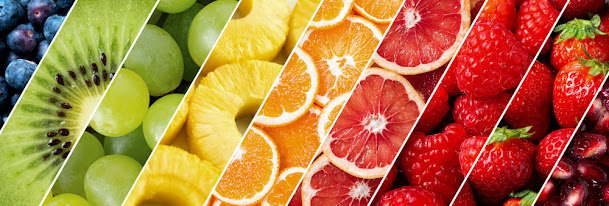Best Fruits and Vegetables for a Pregnant Woman
Being pregnant comes with a litany of challenges (and cravings), but it also gives new moms-to-be an opportunity to be more health-conscious than ever before. That’s because you now have a precious little person growing inside you that you want to care for and protect as much as possible. This goes without saying, but choosing the right foods is essential during pregnancy. Not only are these foods good for your growing baby, but they’ll also help keep you healthy and energized throughout this physically taxing time. However, there are several key things to consider when eating fruits and vegetables during your pregnancy. For instance.
Which Fruits and
Vegetables Are the Healthiest?
When it comes to fruits and vegetables online in Chennai, there are a few things to be aware of. First, you’ll want to make sure you get a variety of produce in your diet. Variety is key when it comes to pregnancy nutrition, since different foods contain different vitamins and minerals. In general, you’ll want to eat two to three servings of vegetables a day and two servings of fruit per day. Another thing to note is that frozen fruits and vegetables are just as healthy as their fresh counterparts. They’re often frozen right after harvesting, which means they retain more of their nutrients than fresh produce that has been sitting in the produce aisle for days or weeks. You’ll also want to look out for certain foods that you may have avoided while not pregnant, but are now okay to eat. For instance, you’re now allowed to have peanuts, which contain a bit of a toxin that pregnant women are advised to avoid. So make sure to check the list of foods to avoid during pregnancy and the list of foods to eat during pregnancy to make sure you get the most out of your diet.
Can Pregnant
Women Eat Eggs?
In short: Yes! Eggs are an excellent source of protein, and are also rich in B vitamins, iron, selenium, and iodine. However, pregnant women should be aware that eggs also contain a small amount of cholesterol. That being said, studies have shown that even though cholesterol intake increases blood cholesterol levels, it doesn’t have a significant effect on heart disease risk. In fact, eggs are a good source of choline, which has been linked to a lower risk of neural tube defects in newborns. There’s only one catch: Pregnant women should avoid eating raw eggs or foods that contain raw eggs, like homemade Caesar dressing. That’s because a parasite called salmonella can be found in raw eggs, and it can be very dangerous for unborn babies. Pregnant women should also avoid foods like cookie dough, cake batter, and other raw doughs that contain uncooked eggs, since the risk of salmonella is too high. Instead, they should opt for foods that have been cooked thoroughly and that don’t contain any raw eggs.
What About Fish?
Fish is an excellent source of protein, omega-3 fatty acids, and various B vitamins. It’s also rich in selenium, which studies have shown to be beneficial for pregnancy. In fact, many experts believe that pregnant women should increase their selenium intake during pregnancy because it can help with fetal development and reduce the risk of neural tube defects. Now, you’ll have to choose your fish carefully if you’re pregnant, since certain types of fish contain high levels of methylmercury. This is a toxin that can build up in the body over time and be harmful to both the mother and the baby. For that reason, it’s best to avoid large fish, including tuna, swordfish, and cod. Instead, you can eat up to two servings of fish that has a low methylmercury content per week, including salmon, pollock, and tilapia.
Tips for
Choosing and Storing Fruits and Vegetables
If possible, buy local produce that’s in season. This will not only help your wallet, but it will also ensure that your produce is as fresh and nutritious as possible. You’ll also want to make sure to properly store your fruits and vegetables. For example, you should keep bananas away from ethylene, which can cause them to ripen faster. Make sure to store ethylene-sensitive vegetables like lettuce and tomatoes in a plastic bag. As for storing fruits, you can put apples, pears, and grapes in the fridge, while peaches, plums, and nectarines can stay on the countertop.
A online vegetable shopping in chennai healthy, balanced diet is essential for maintaining optimum wellbeing. The nutrients found in food give our bodies the energy and strength to function effectively and support everyday activities. A healthy diet can also help protect you from developing certain diseases and help reduce your risk of others. In general, it’s recommended that women consume a balance of carbohydrates, fats, protein, vitamins, minerals and fibres from plant sources each day. However, everyone has different dietary needs based on factors like age, weight, activity level and health conditions. This article will explore 10 foods every woman should eat every day to maintain a healthy body and mind.
Dark Leafy
Greens
Dark leafy greens, like spinach and broccoli, provide a range of vitamins and minerals, as well as fibre and antioxidants. All of these nutrients are essential for a healthy body, and are especially beneficial for women. Dark leafy greens can help prevent cancer and osteoporosis. They may also be effective at reducing PMS symptoms like cramps and mood swings. To get the most out of your greens, try to consume them raw or only lightly cooked, as excessive heat can destroy key nutrients. Try adding spinach or broccoli to salads or putting them in smoothies.
Beans and Legumes
Beans, lentils and legumes are packed full of fibre, as well as being a good source of protein. Fibre helps to keep you feeling full, which is especially important for women who may experience fluctuations in their hormone levels throughout the month. Legumes are also a low glycemic food, which means they do not trigger sudden spikes in blood sugar, making them ideal for diabetics. Try adding beans and legumes to soups and stews, or make them the main feature of a tasty salad.
Eggs
Eggs are one of the most widely eaten foods on the planet, and it’s easy to see why. They are high in protein, low in fat and contain a range of vitamins and minerals. As well as being beneficial for your health, eggs are also an excellent source of affordable, high-quality protein. Eggs are also a great source of choline, a nutrient that may help reduce the risk of breast cancer and cardiovascular disease. You can enjoy eggs in a wide range of healthy recipes, from omelettes to frittatas and quiches.
Oily Fish
Healthy sources of oily fish, like salmon, mackerel and herring, are a great addition to any diet. They contain omega-3 fatty acids, which help to reduce your risk of heart disease and improve your brain function. Oily fish is also high in vitamins and minerals, making it a great all-round healthy food. Try to eat two servings of oily fish per week, as eating more may increase your risk of mercury poisoning. You can enjoy these fish in salads, casseroles, on sandwiches, or even in sushi.
Nut and Seeds
Roasted Food
Nuts and seeds are a tasty and nutritious snack that can be eaten whenever you feel peckish. They are a good source of protein and fibre, and can also help to reduce blood cholesterol. You can roast a wide variety of nuts, as well as seeds like sunflower, pumpkin and sesame. Roasted nuts and seeds are a great addition to salads, trail mixes, and crunchy snacks like crudités and crackers.
Whole Grains
Whole grains, such as quinoa, oats and brown rice, are a great addition to any diet. They are packed full of nutrients and are low in fat and calories. Whole grains are also a good source of fibre and have been linked with a reduced risk of heart disease and certain cancers. Try to replace your refined grains with whole grains as often as possible. You can enjoy whole grains in porridge, cereal, salads, and an assortment of baked goods, like cakes, muffins and bread.
Fresh Produce
Fresh produce, like fruit and vegetables, are the foundation of a healthy diet. They are packed full of vitamins, minerals and fibre, and are a low-calorie source of energy. Eating a balanced diet that includes a variety of fresh fruits and vegetables can help reduce your risk of developing many diseases, such as heart disease, diabetes and certain types of cancer. Make fresh produce your go-to snack, or add it to salads, soups, and smoothies.
Superfoods
Superfoods are nutritional powerhouses that provide your body with a wide range of vitamins, minerals, antioxidants and other nutrients. They are particularly beneficial to women, as their diets may need to be tailored to suit their unique needs. Try adding superfoods to your diet as often as possible, as they contain a wide range of vitamins, minerals and antioxidants that may help to protect you from many diseases. You can add superfoods to salads, smoothies, and baked goods, or you can try adding them to savoury dishes, like curries and stews.
Conclusion
buy fresh fruits online chennai are a must-eat during pregnancy,
and it’s important to make sure they’re properly prepared and stored. When it
comes to choosing your produce, go for a variety of different types and try to
get as many fruits as you can. And remember: It’s never too late to start
making better choices for your health and your baby’s health.



Comments
Post a Comment